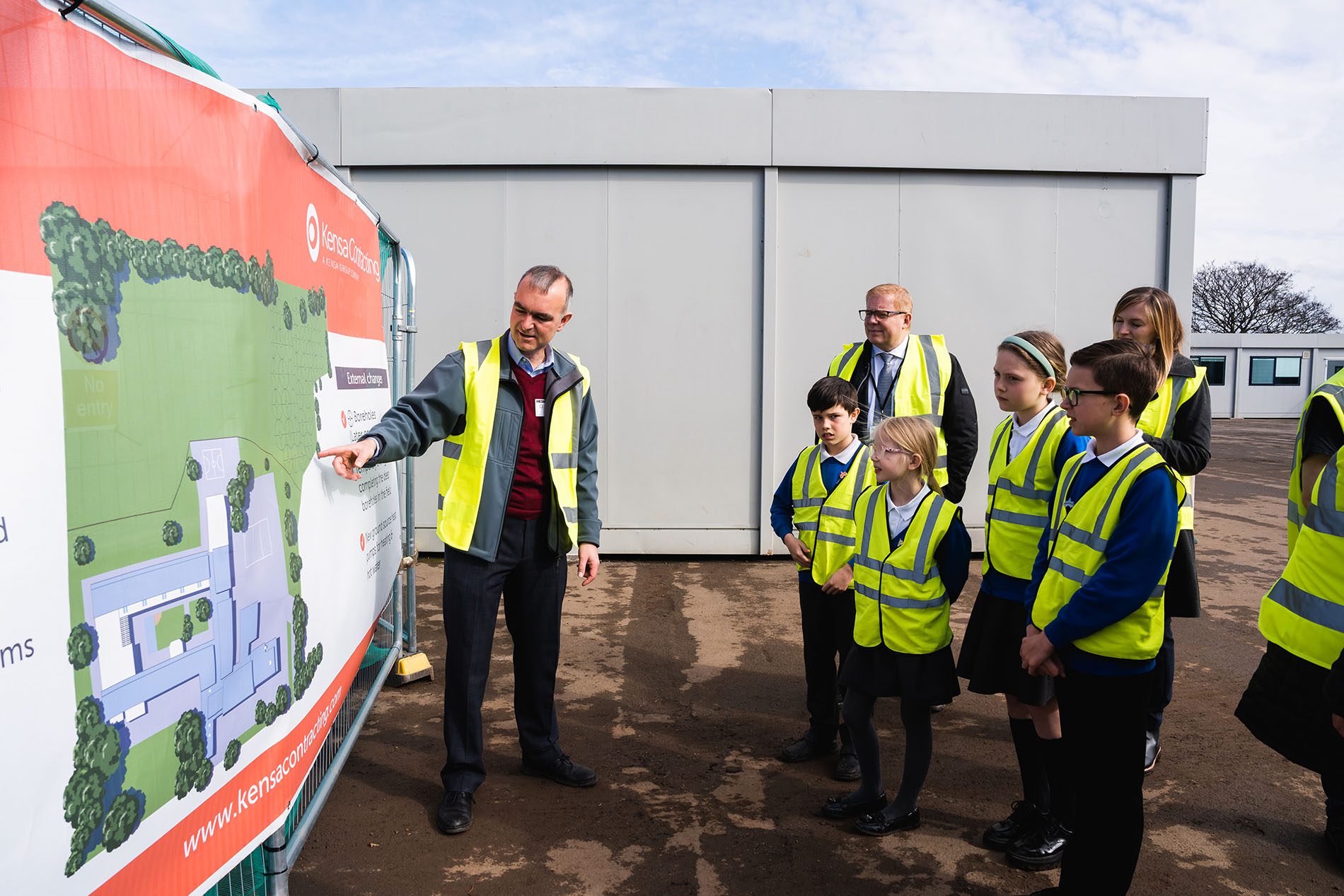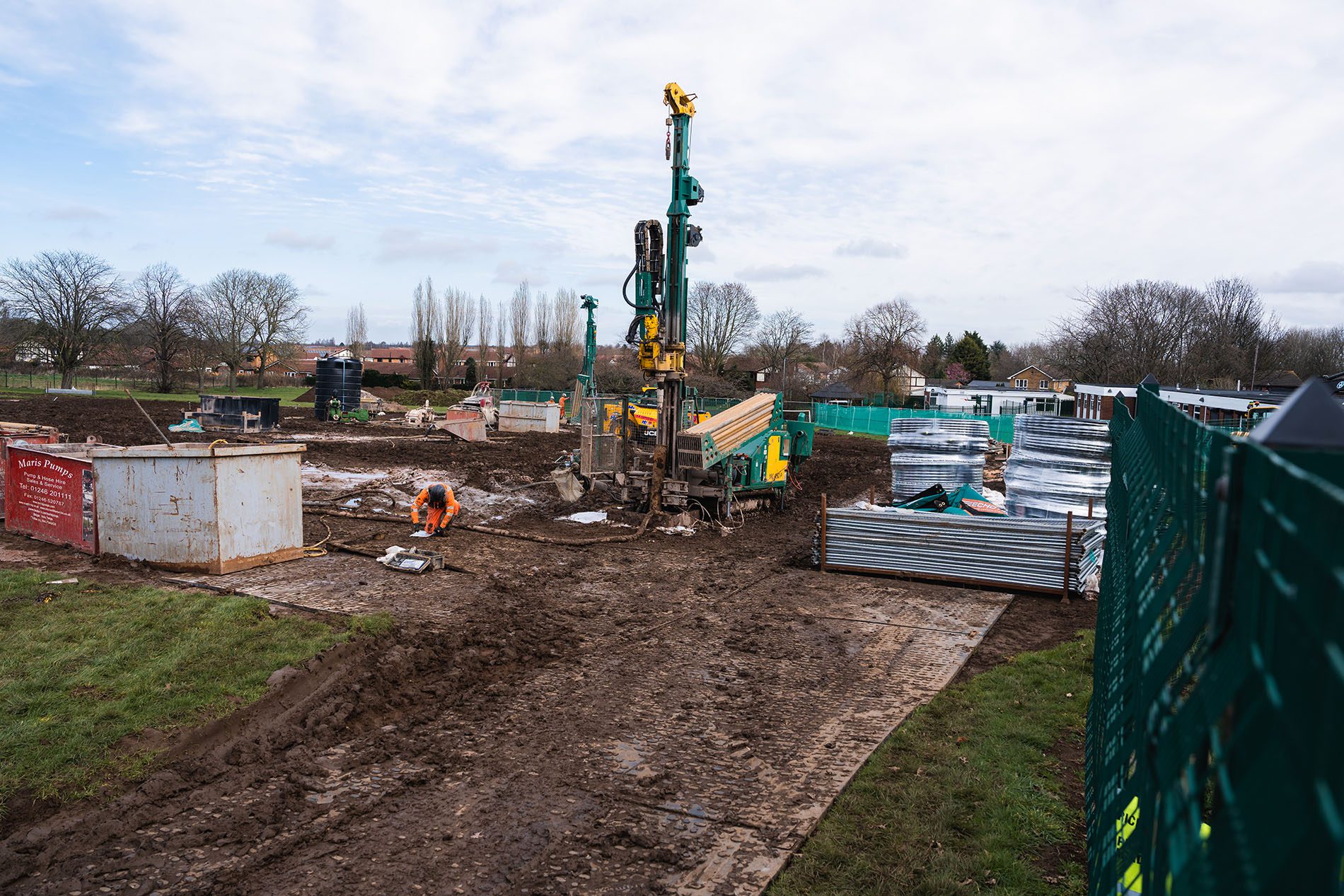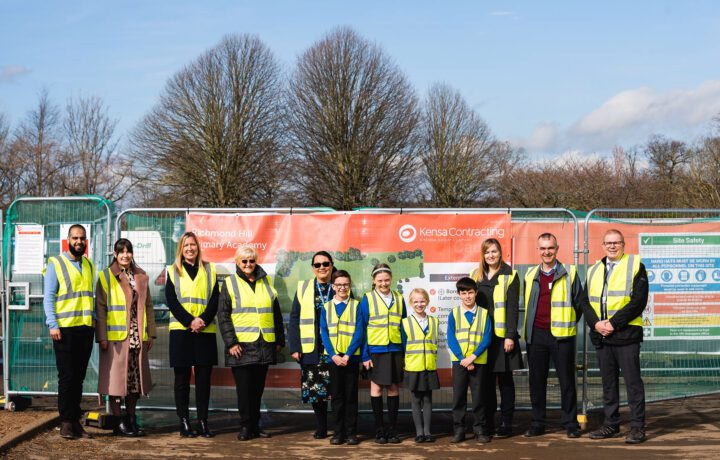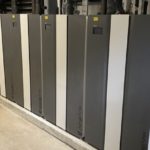As part of an extensive energy-saving overhaul delivered by Kensa Contracting, Richmond Hill Primary Academy, part of the Roselearning Trust, in Doncaster, is having a low carbon ground source heat pump system installed, allowing the school to focus on teaching without having to worry about heating.
For many years, the large primary school lacked properly functioning central heating, with some children having lessons in temporary classrooms with interim gas heaters. These systems were costing the school lots to run, emitting lots of carbon dioxide, and were ultimately ‘stop-gap’ measures for the real problem of the redundant gas central heating system and poor insulation in the main building.
Now, Richmond Hill Primary Academy is celebrating the start of a ground-breaking project to rapidly upgrade to low carbon, highly efficient ground source heat pumps (GSHPs) and new radiators across the school. The project is part of the Department for Education’s (DfE) pilot decarbonisation programme to support schools to transition to low carbon.

Analysis from Schools Week, revealed that some UK schools had seen their energy bills increasing almost sixfold year-on-year, and in a recent survey of schools by Let’s Go Zero, the campaign supporting schools to be zero carbon by 2030 ,72% of respondents said that they are concerned or very concerned about keeping their schools warm this winter.
Ground source heat pumps provide a permanent, efficient and environmentally-friendly solution by harnessing naturally replenished heat energy stored underground without producing any point of use emissions. At Richmond Hill, six Kensa Q80 high-capacity ground source heat pumps will deliver 100% of the entire school’s heating and hot water needs. 33 boreholes are being vertically drilled to a depth of 224m underneath the adjacent playing field and will be invisible. Once the turf has been reinstated and made good, the field will be in a much better condition than before.

As all the work is being undertaken during term-time, Kensa Contracting has put measures in place to reduce the disruption to pupils learning and is phasing the installation to enable the children to get back into the main building as quickly as possible. Kensa is also completing fabric upgrades to the building, including replacing old and broken windows and upgrading doors with more thermally efficient models. These measures will help lower the total energy requirement and reduce heat wastage, before the switch to the low carbon heating system.
Debbie Secker, Principal at the Academy, said:
We are grateful to the DfE for including our school in this programme and are looking forward to having the new Kensa ground source heat pumps installed to provide our children with a much-needed warm and comfortable learning environment.
It is fantastic that we will have a permanent, reliable, heating system that will save the school money on our energy bills. The fact that it will also help us lower our carbon footprint as we tread a path towards an energy-efficient and greener future is so important to our children, our hard-working staff and the wider community.
Ian Goodchild, Director of Sales – Non-Domestic at Kensa, said:
We are extremely proud to be working on this prestigious project and provide the deserving children and their wonderful teachers with an efficient and low carbon heating system, plus other measures that will make their school warmer, more comfortable and cost less to run.
By working closely and considerately with the school, ECS Consultants and the DfE, Kensa is showing that large scale infrastructure projects of this nature can be undertaken during term times with minimal disruption to pupils and staff.
Ian continued:
Ground source heat pumps have the potential to provide the most energy efficient and lowest cost solution to zero carbon heat for countless schools, accelerating the decarbonisation programme of the education sector and helping to achieve the climate change targets that government and local authorities have committed to.
A pupil from the school commented:
We can’t wait to move back into the main school from our portakabins when our classrooms are nice and warm. Our new heating will help the environment, which is really important to us, and not cost as much to run. This will help us but also help other children that come to Richmond Hill in the future.
Works started on site in February 2023 and once fitted, children and teachers at the school will be kept warmer and carbon emissions from heating will reduce by around 75%. The estimated lifetime carbon savings of the system are 1,850 tCO2e – the equivalent to 2,046,857 pounds of coal burned. The school will also save thousands of pounds in running costs benefit from long-term financial security.





